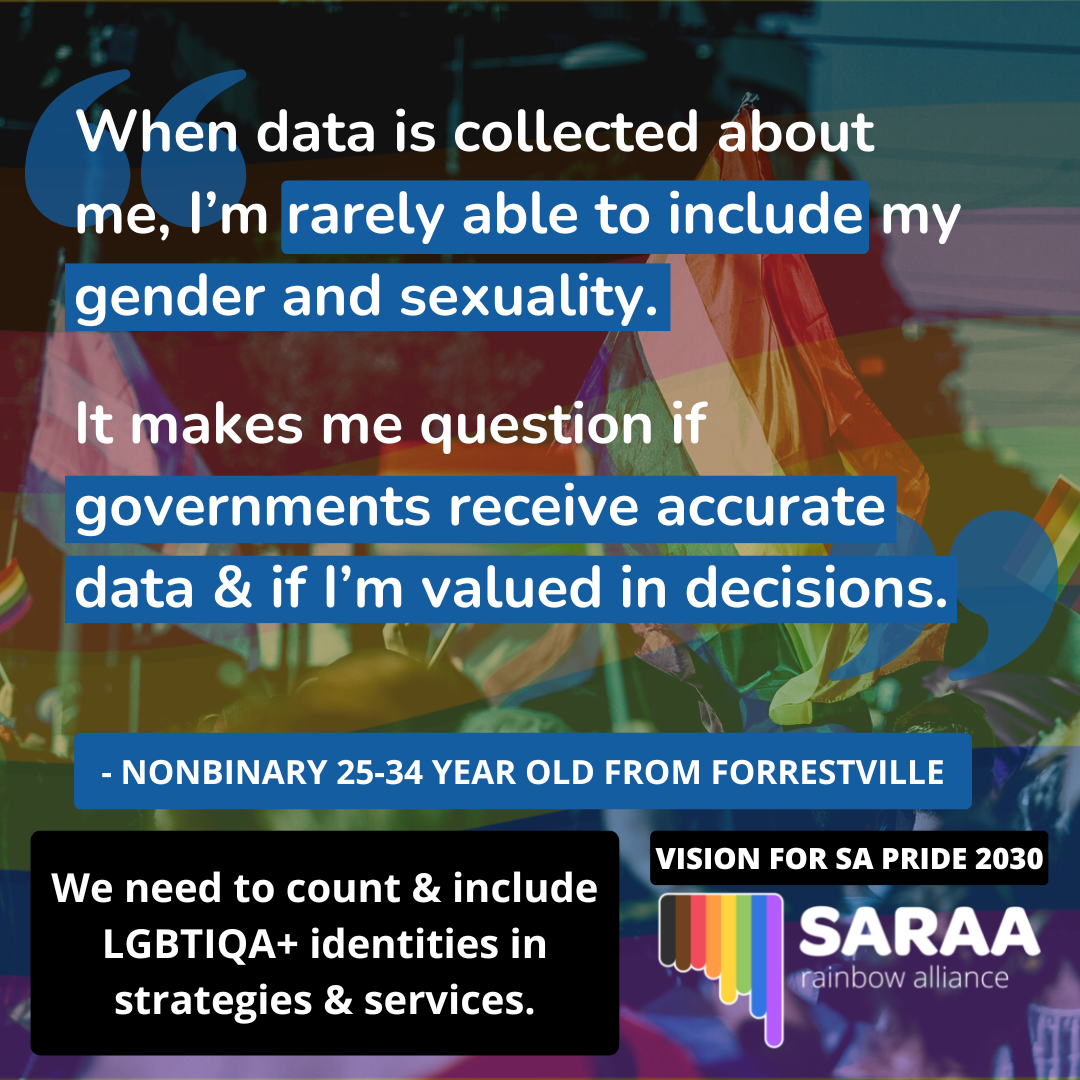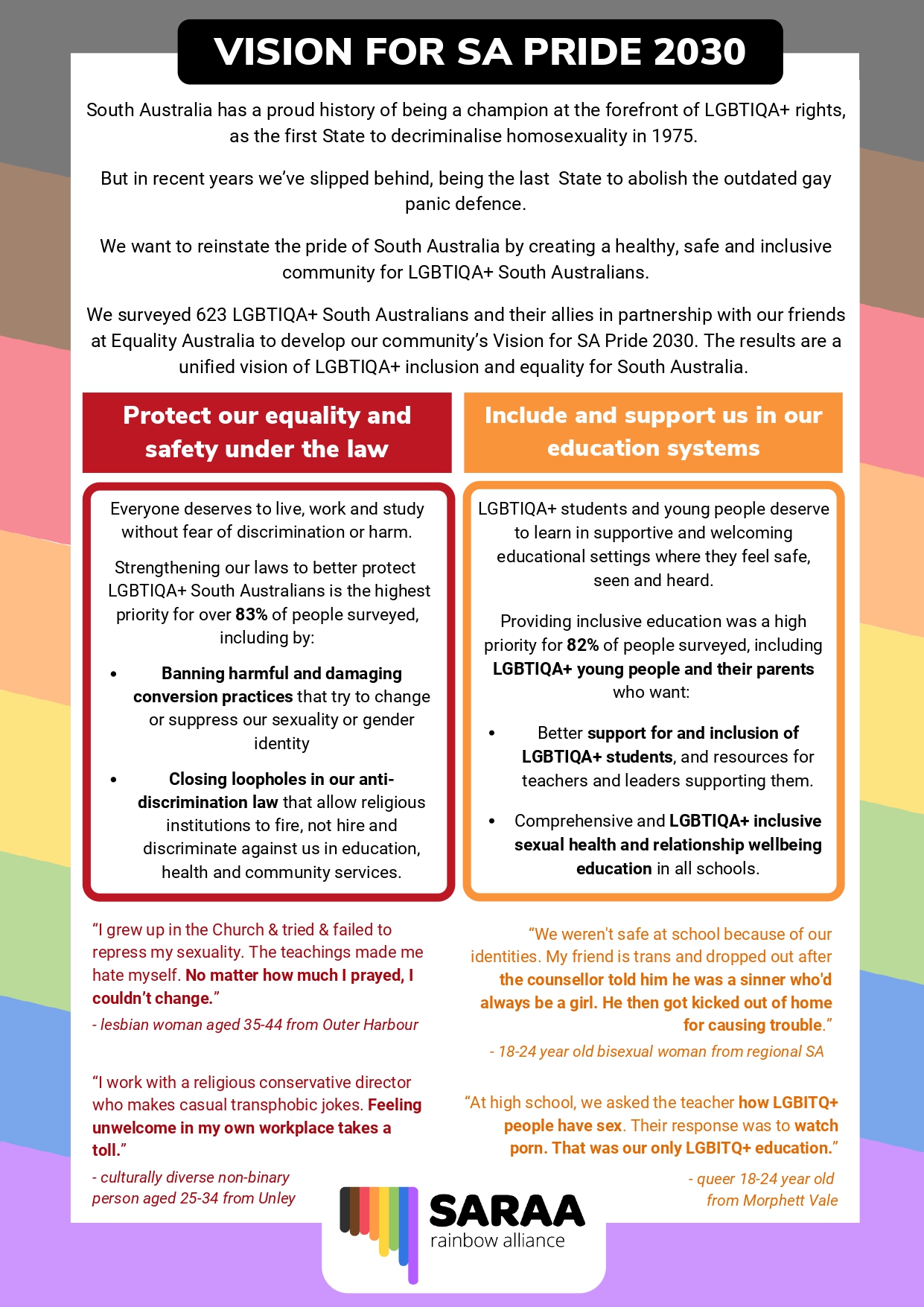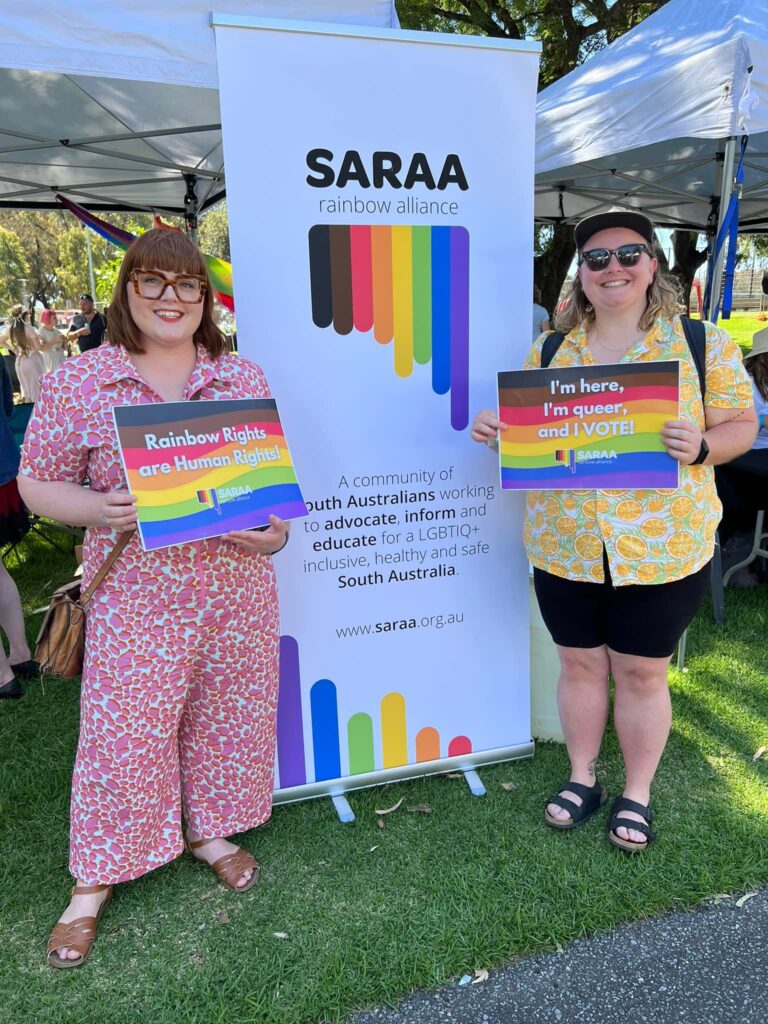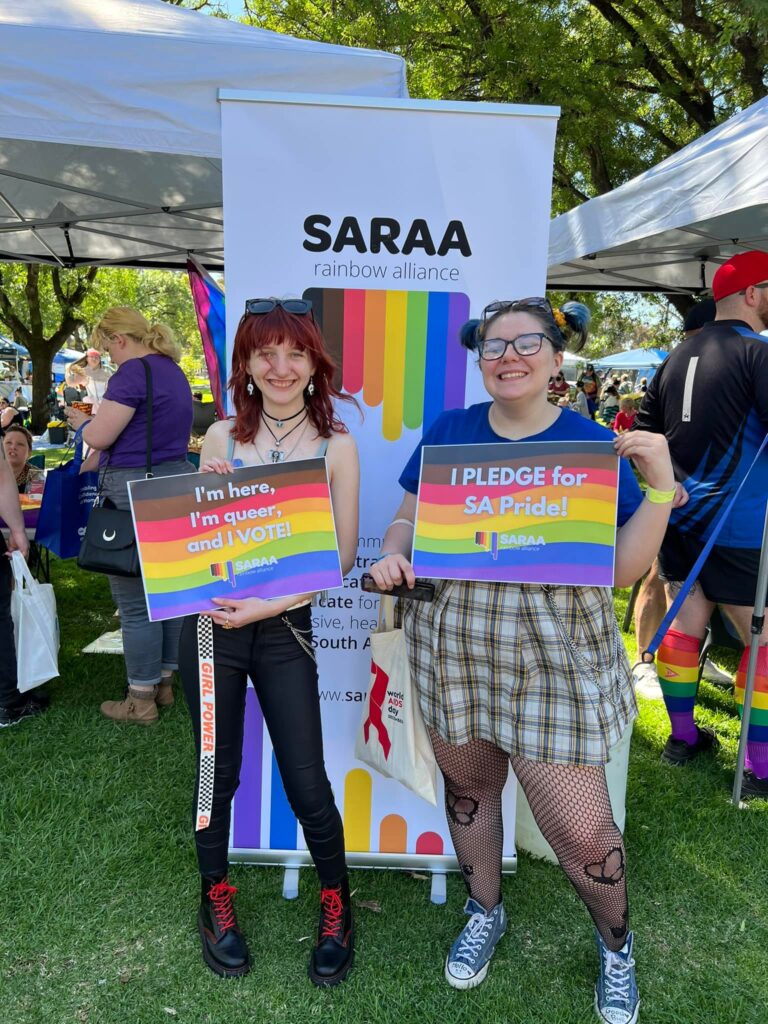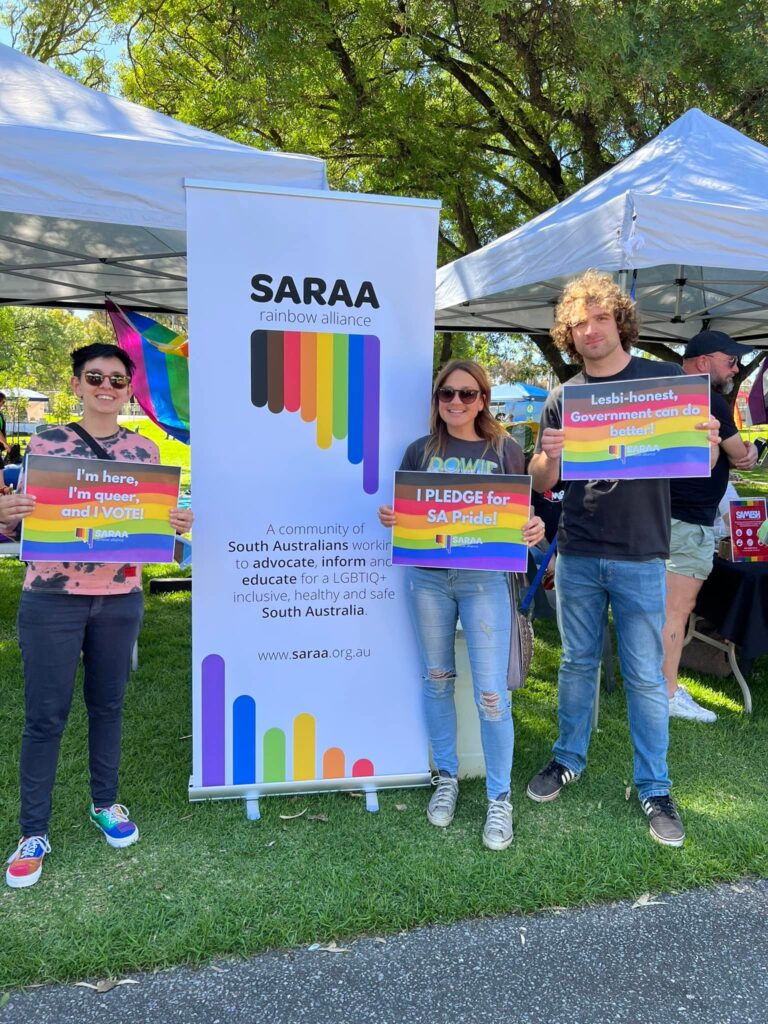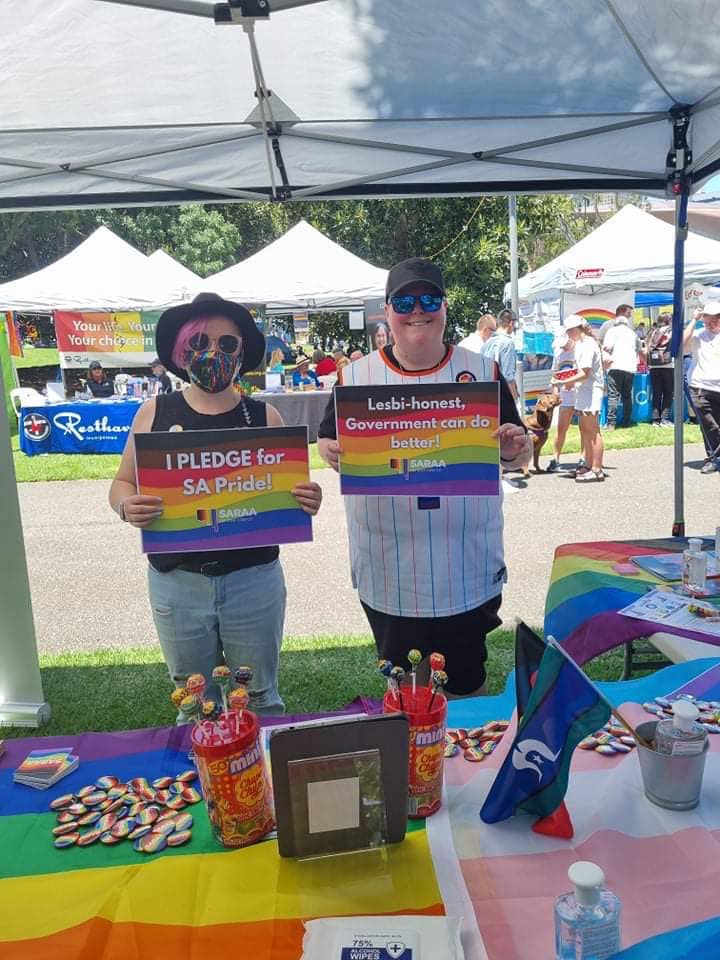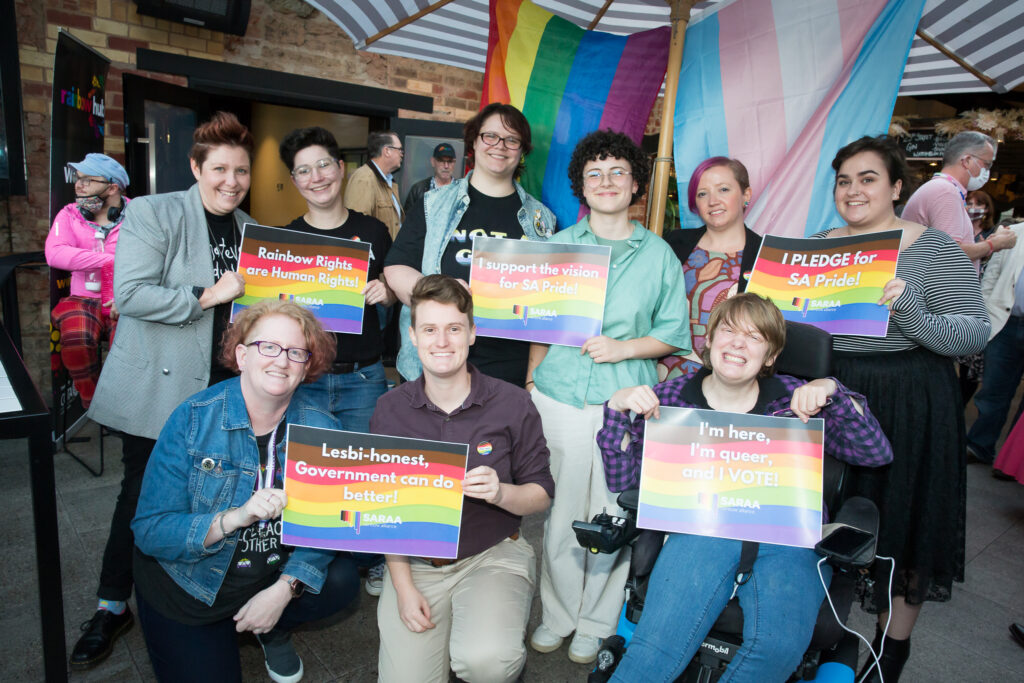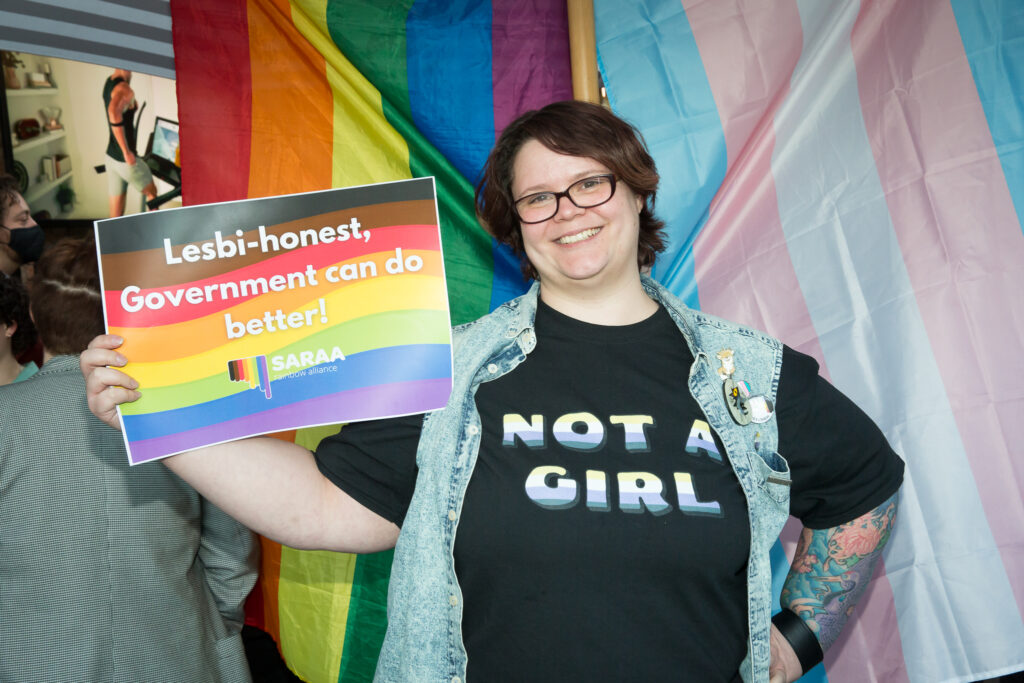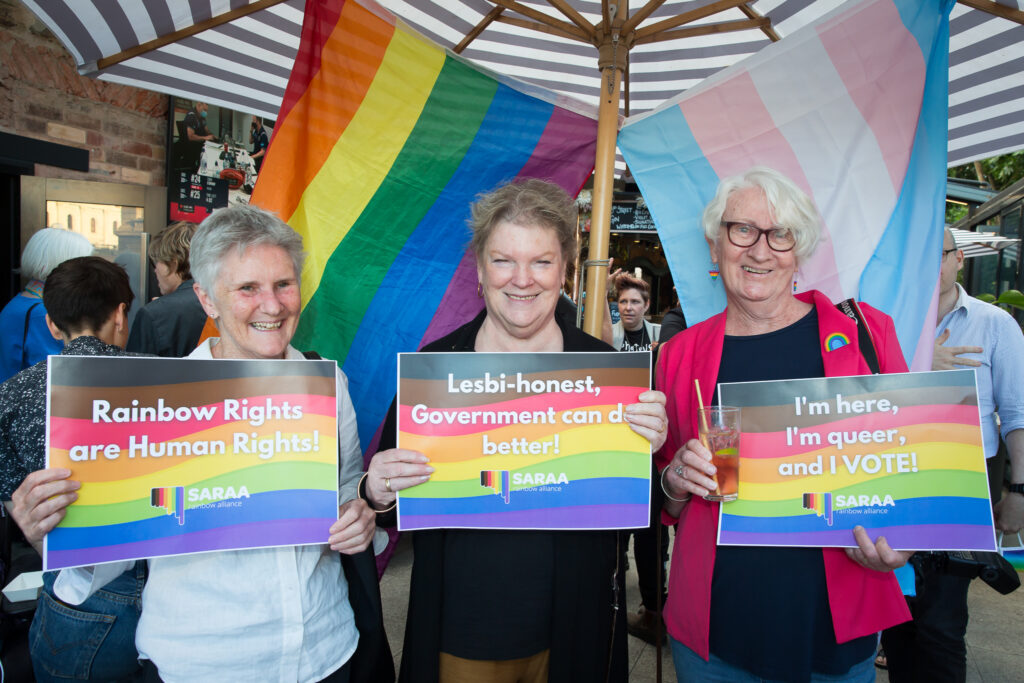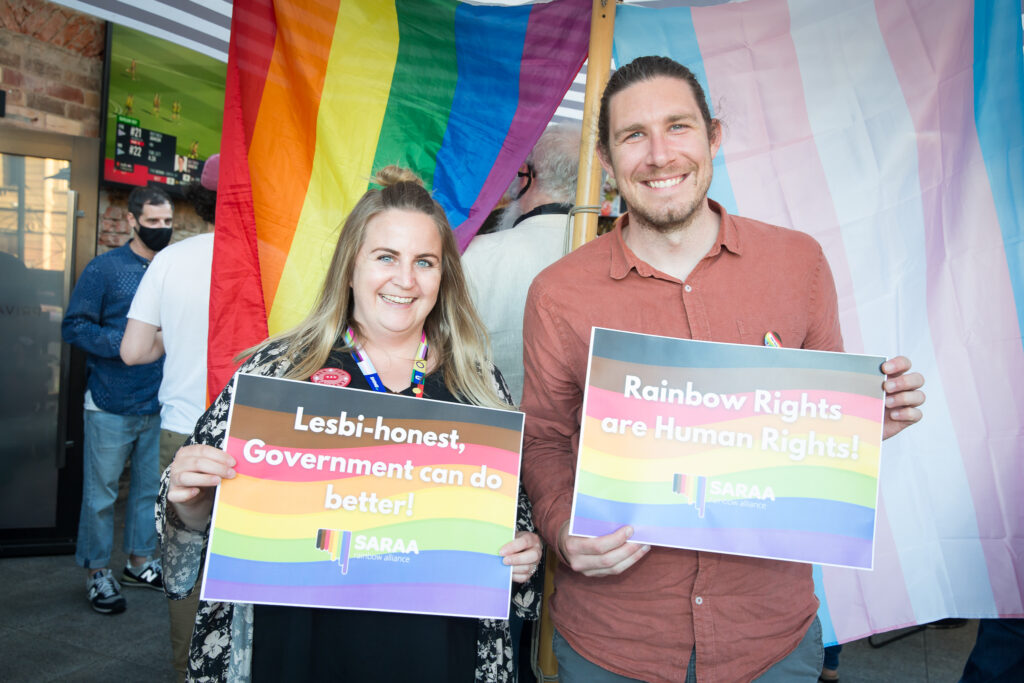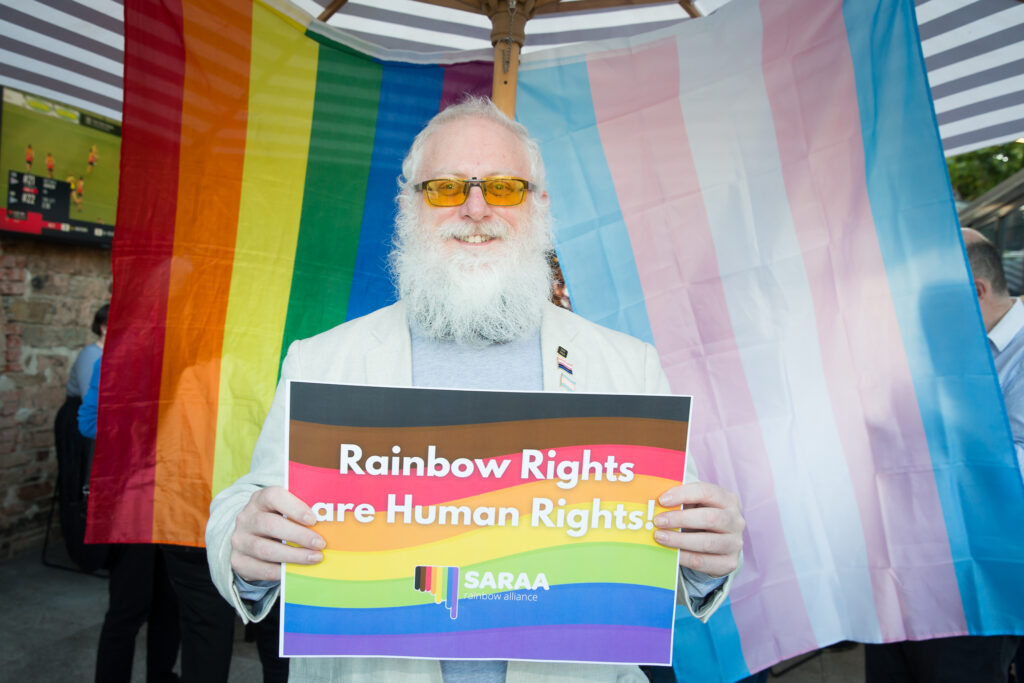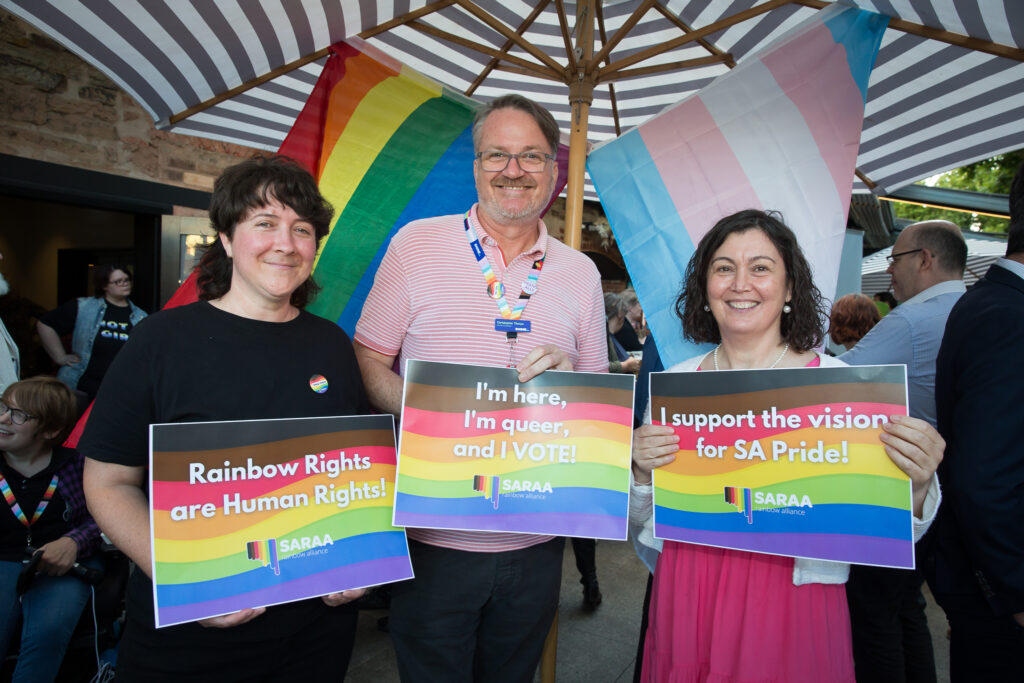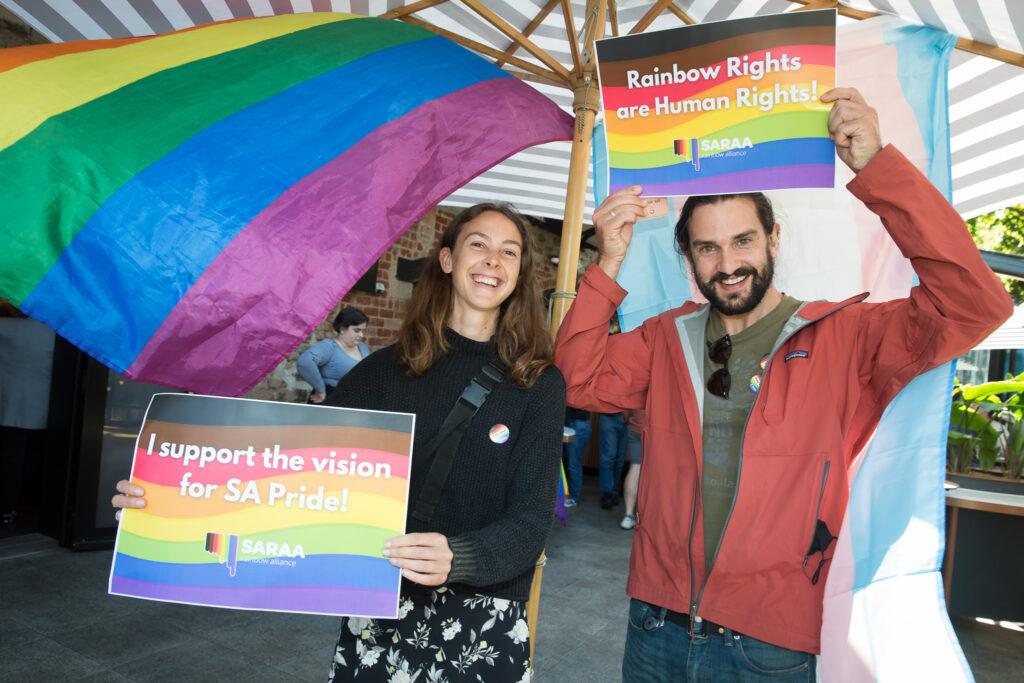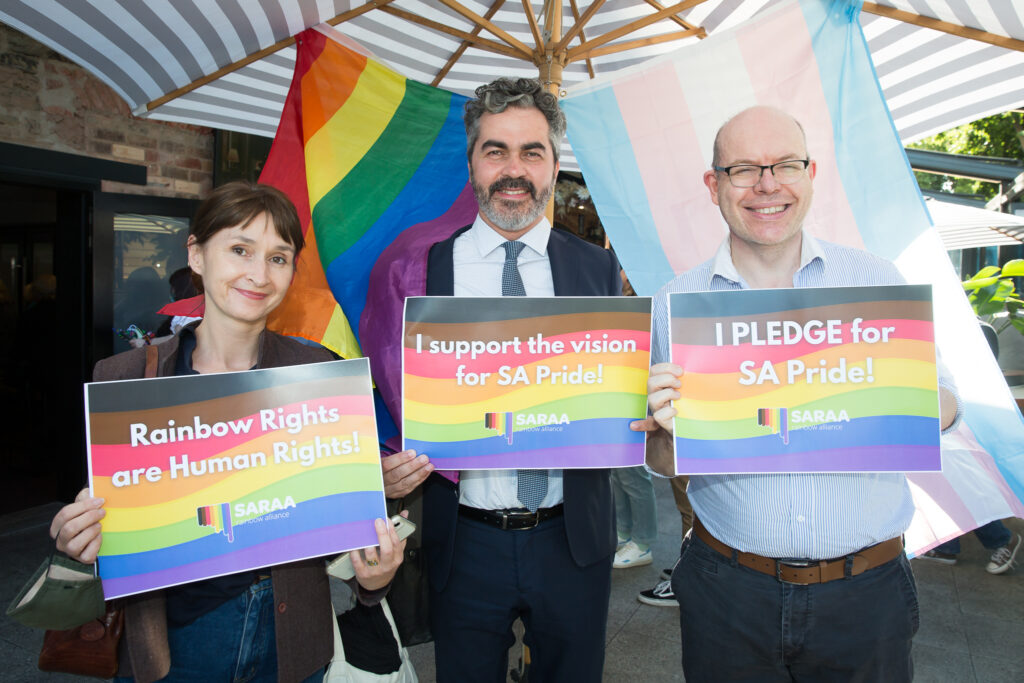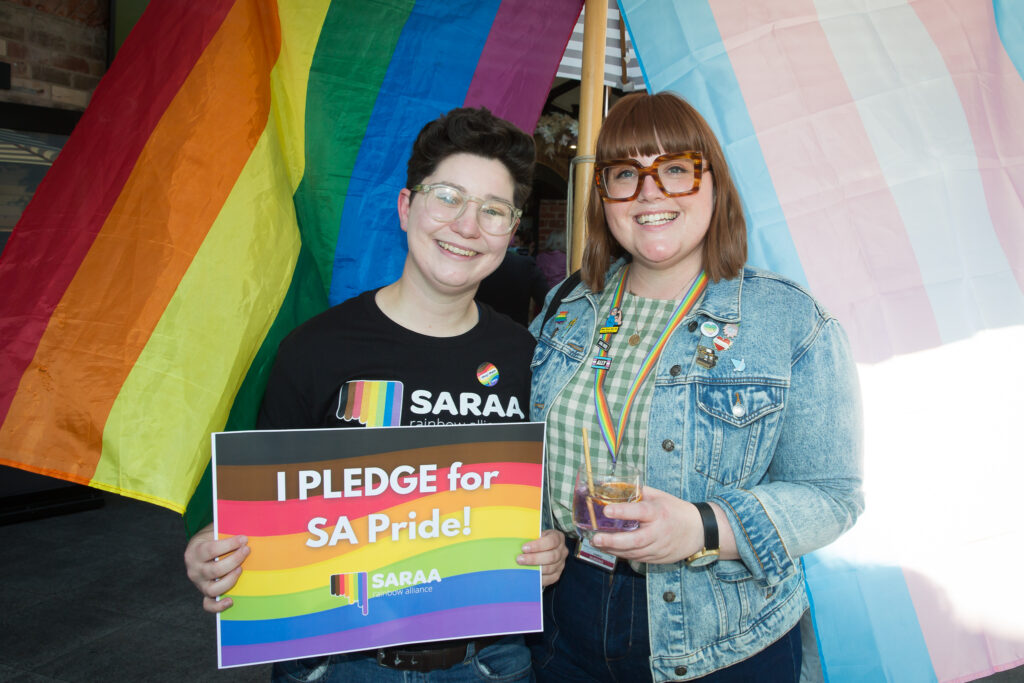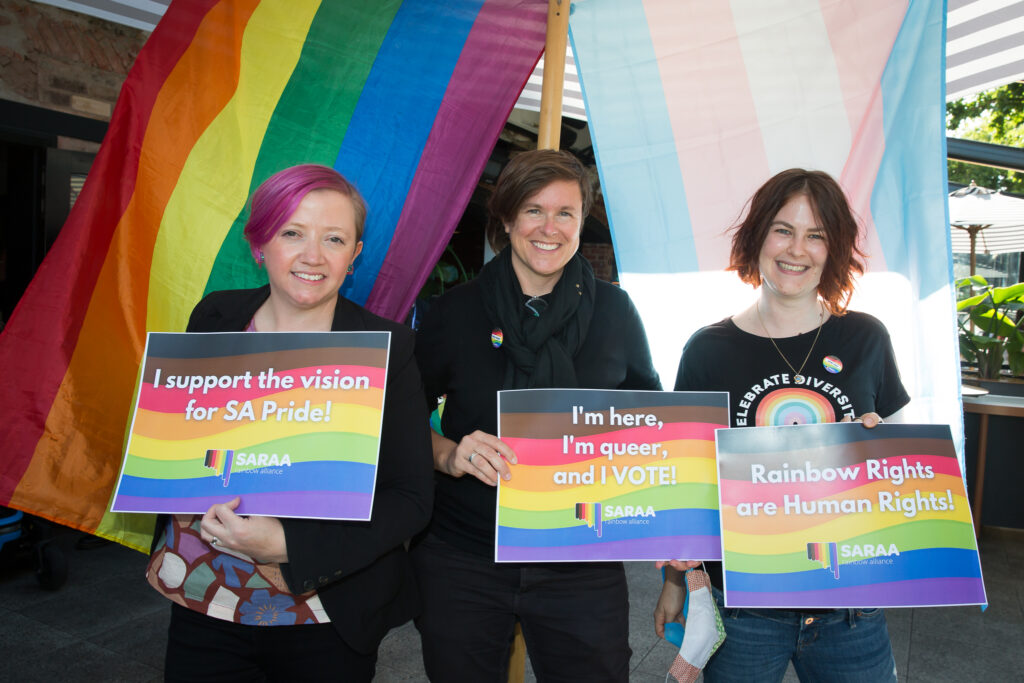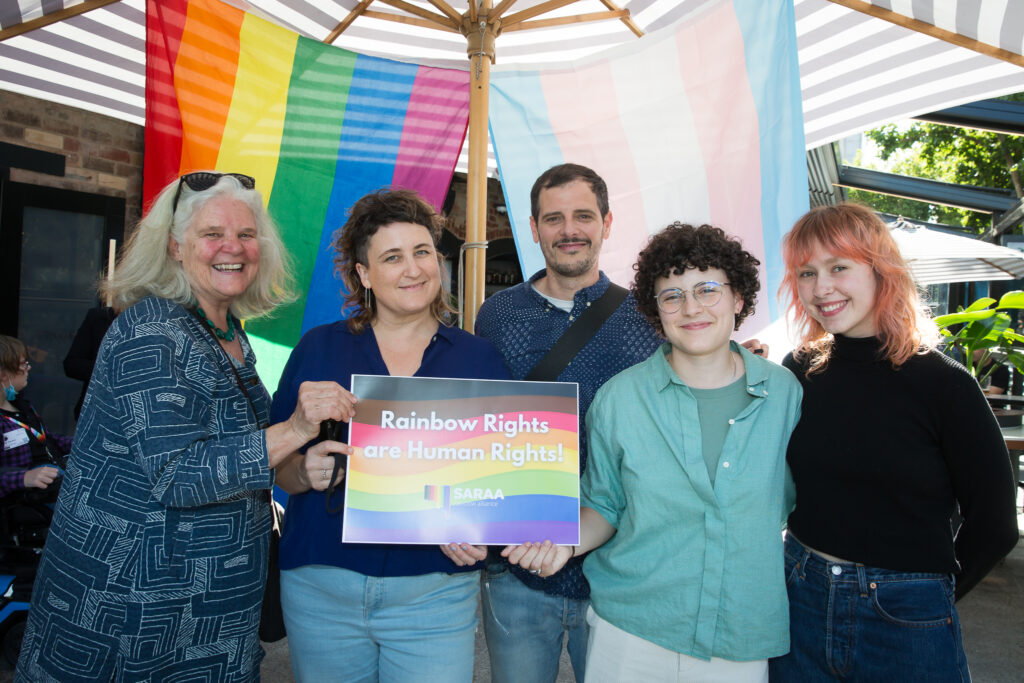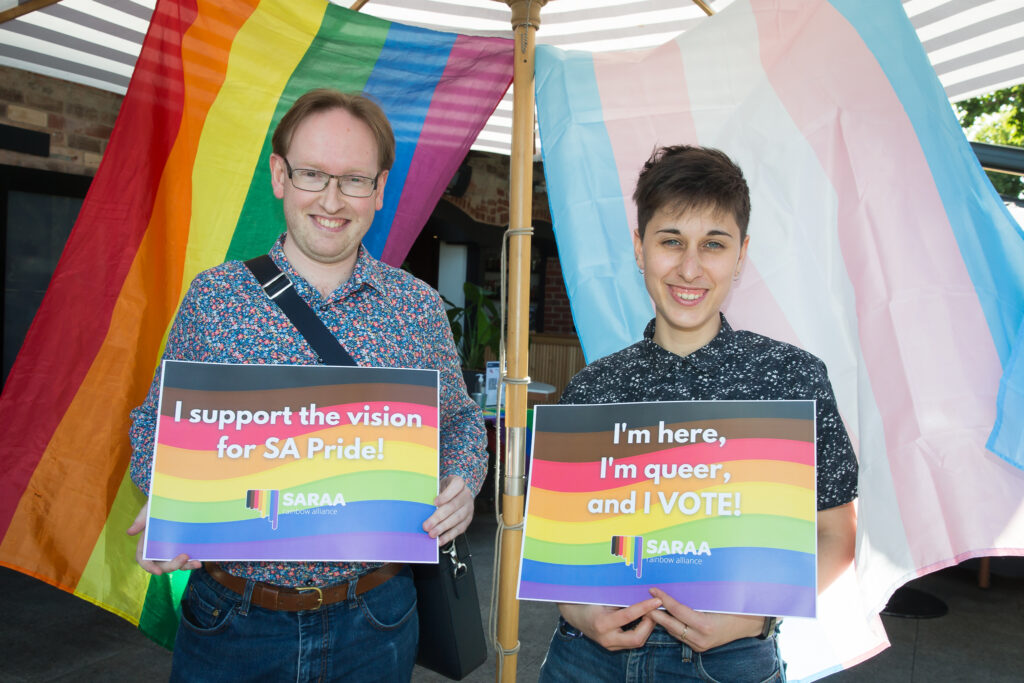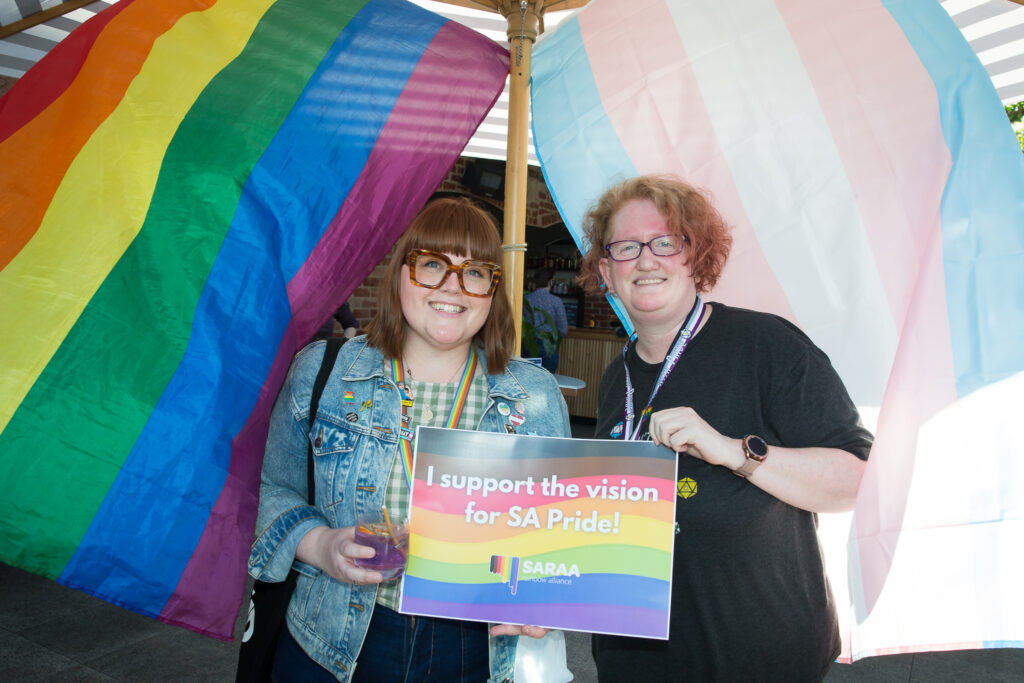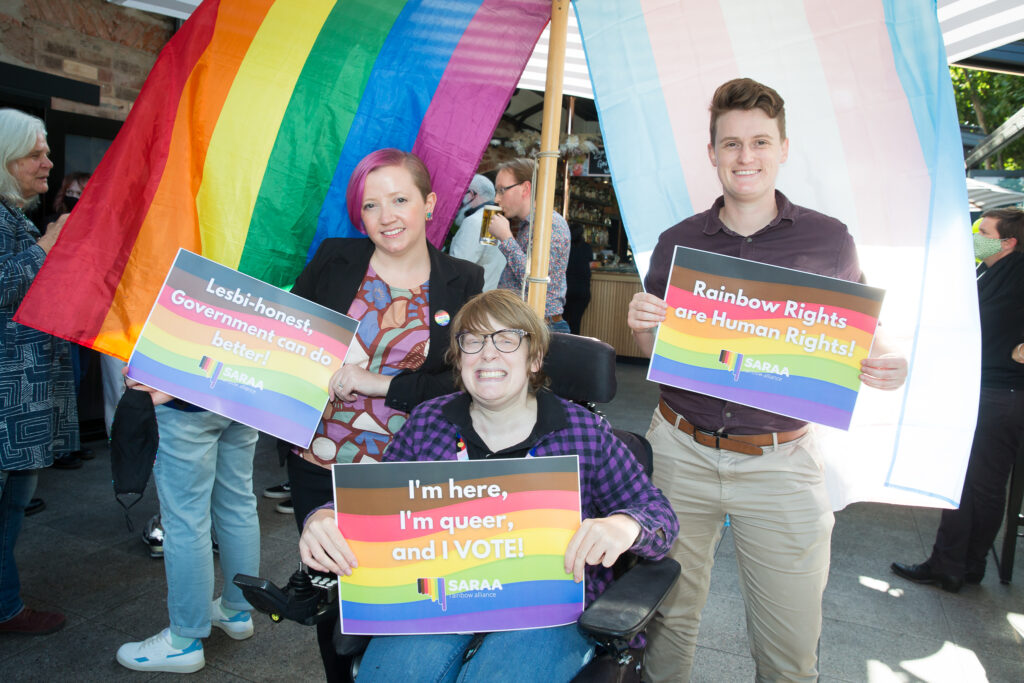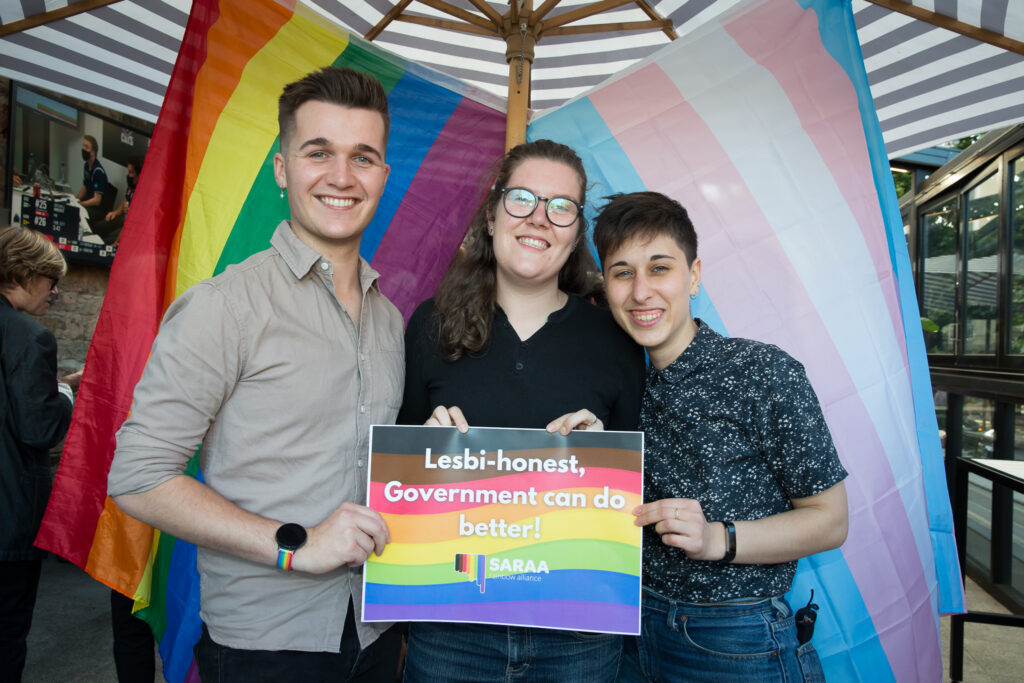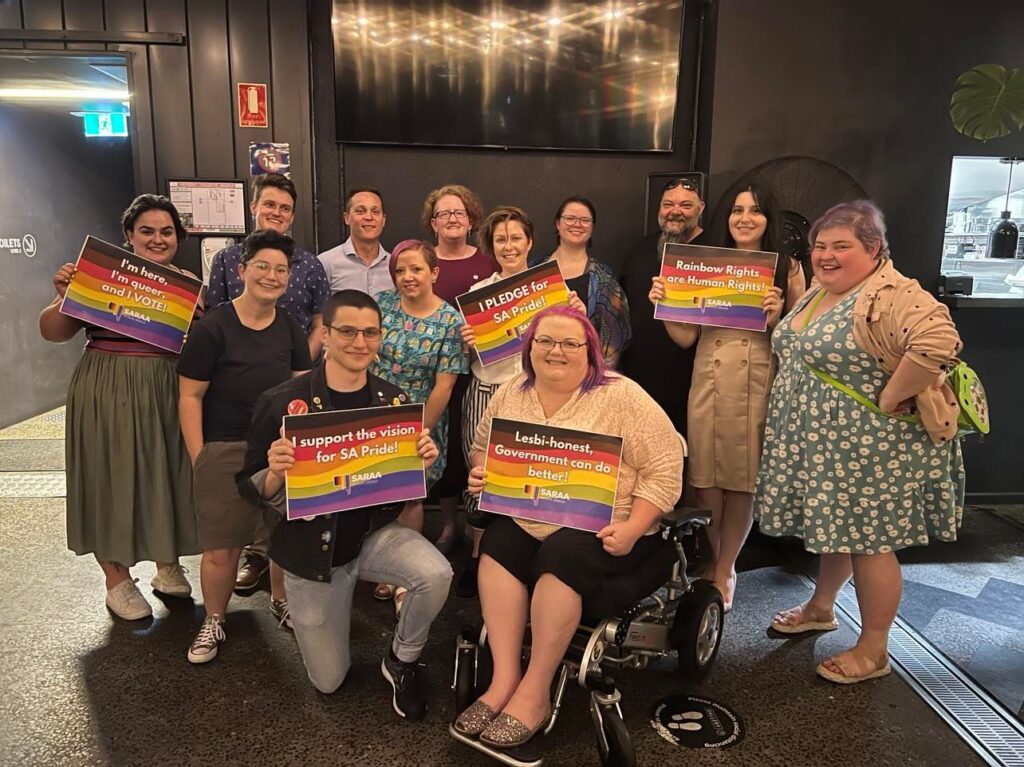South Australia has a proud history of being a champion at the forefront of LGBTIQA+ rights, as the first State to decriminalise homosexuality in 1975. But in recent years we've slipped behind, being the last State to abolish the outdated gay panic defence.
We want to reinstate the pride of South Australia by creating a healthy, safety and inclusive community for LGBTIQA+ South Australians.
In November 2021 we surveyed 623 LGBTIQA+ South Australians and their allies in partnership with our friends at Equality Australia to develop our communities Vision for SA Pride 2030. The results are a unified vision of LGBTIQA+ inclusion and equality for South Australia.
Protect our equality and safety under the law
Everyone deserves to live, work and study without fear of discrimination or harm.
Strengthening our laws to better protect LGBTIQA+ South Australians is the highest priority for over 83% of people surveyed, including by:
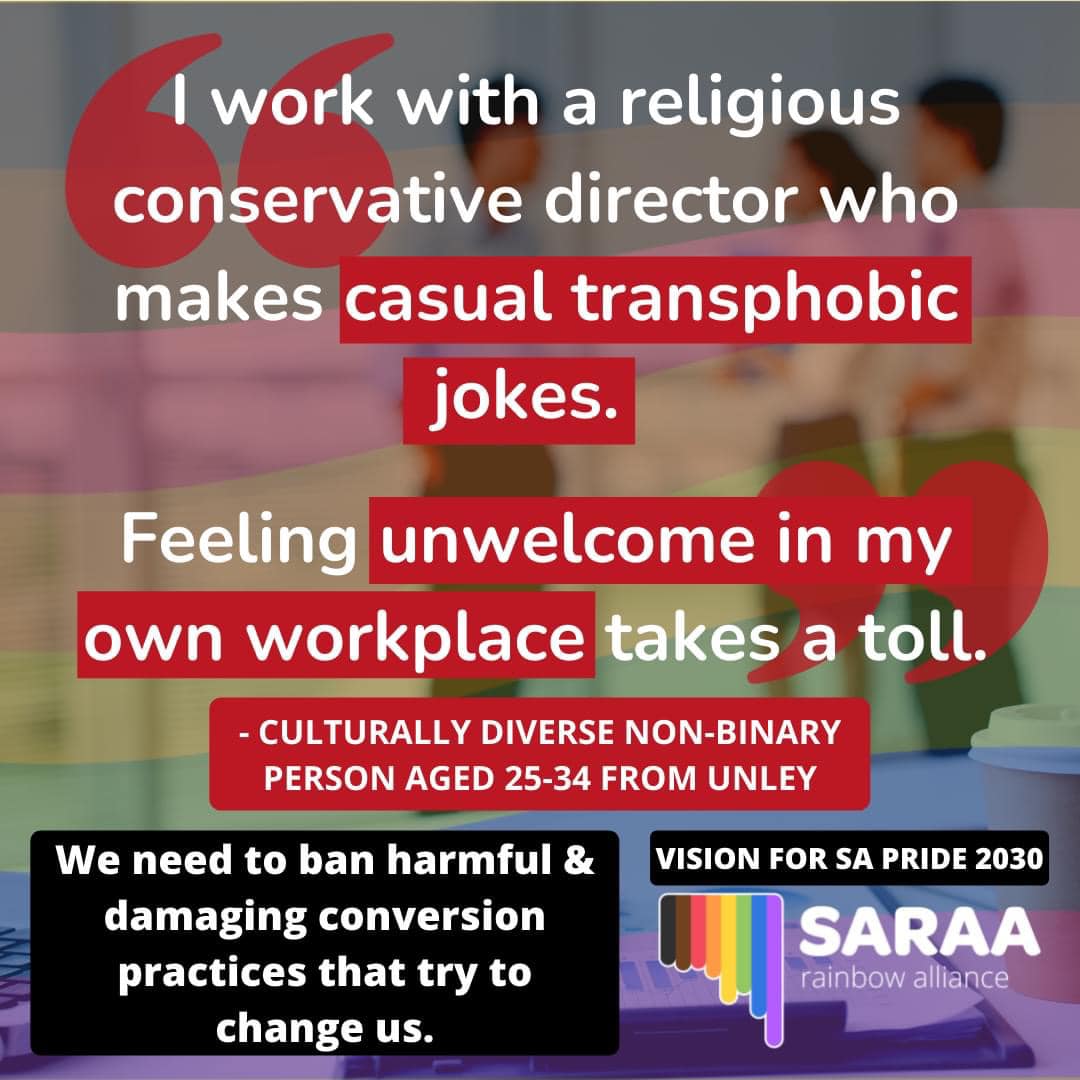
Include and support us in our education systems
LGBTIQA+ students and young people deserve to learn in supportive and welcoming educational settings where they feel safe, seen and heard.
Providing inclusive education was a high priority for 82% of people surveyed, including LGBTIQA+ young people and their parents who want:
- Comprehensive and LGBTIQA+ inclusive sexual health and relationship wellbeing education in all schools.
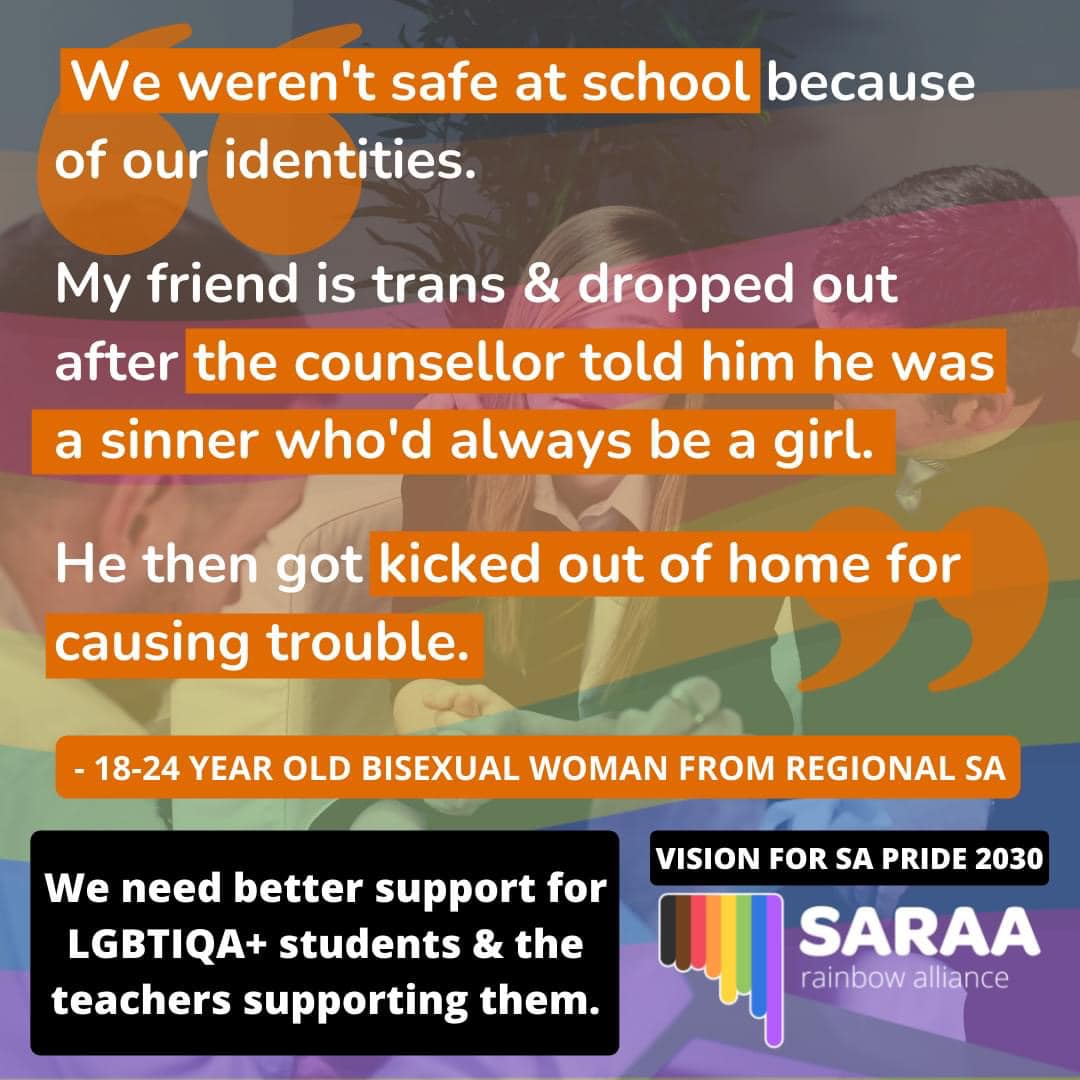
Improve our health and wellbeing
Being LGBTIQA+ is an important part of who we are, yet our experiences of discrimination, stigma and misunderstanding from healthcare professionals keep us from being our best selves.
Mainstream health and community services need to be safer and more inclusive for LGBTIQA+ people, a high priority for 83% of survey participants.
LGBTIQA+ specific services also need to be easily accessible for those in our communities who need them. We urge our government to:
- Invest long-term in supporting the development of LGBTIQA+ community-controlled services who are experts in our health.
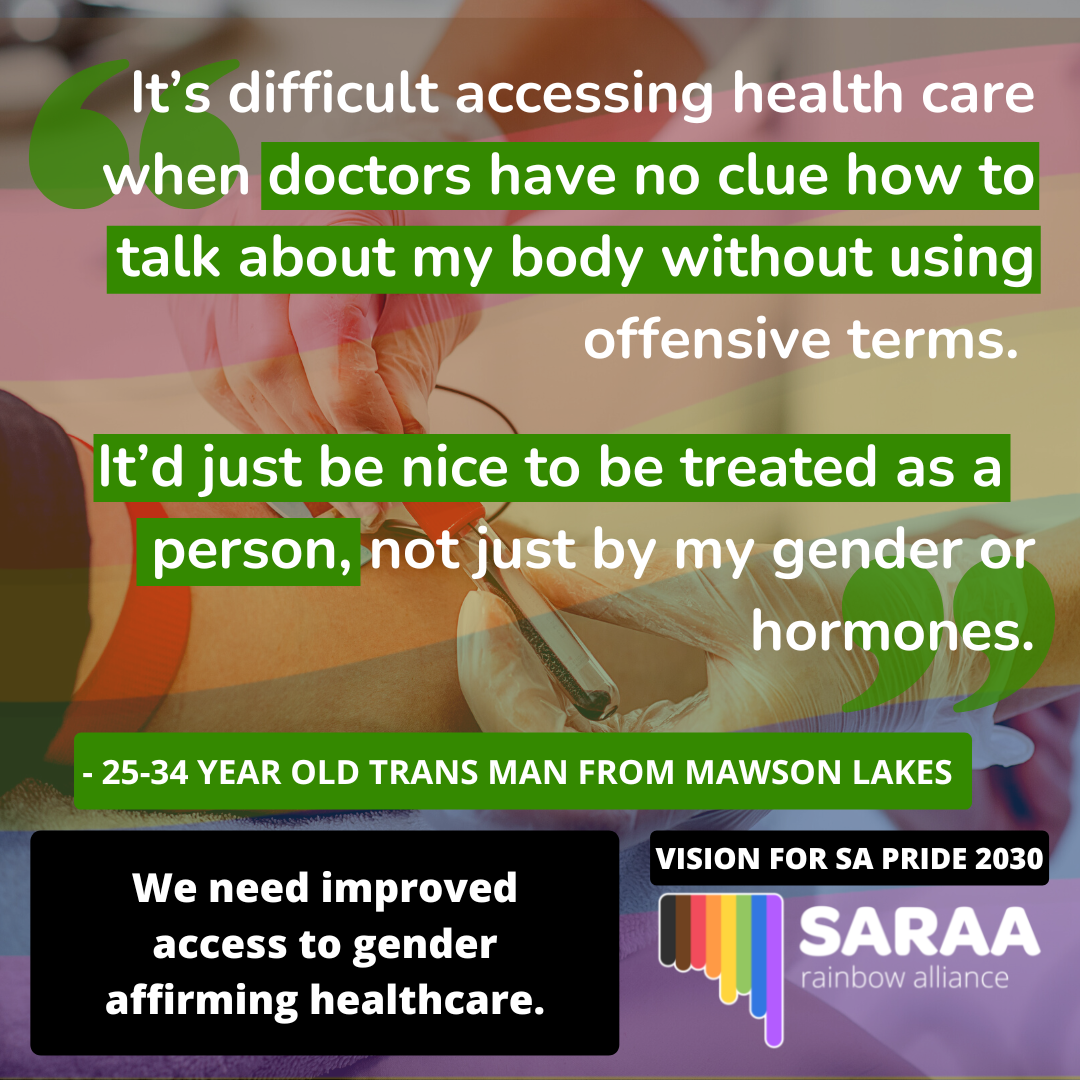
Represent and lead for our communities
We want to be properly counted and considered in Government strategies and services.
Having a seat at the table and a voice in decisions that affect us is a high priority for over 75% of people surveyed, especially First Nations, intersex and older folk who've experienced erasure and invisibility in public policy.
Our Government needs to:
